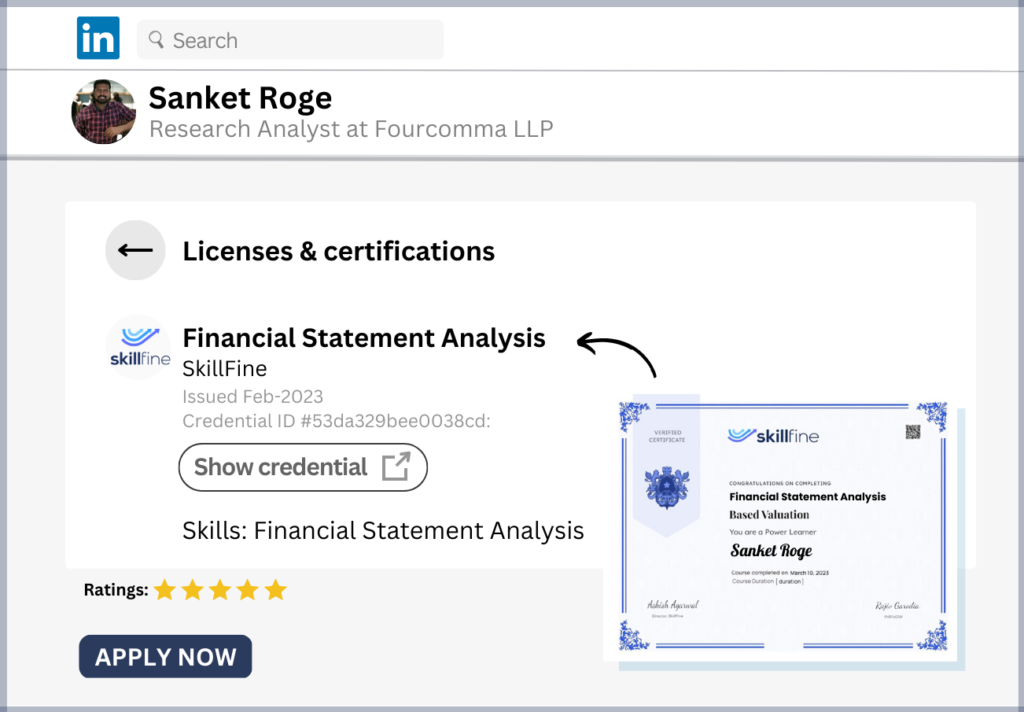Financial statement analysis is a valuable skill for anyone that wants to work as a financial analyst. This niche profession requires you to study and analyze public companies’ balance sheets and income statements so that investors can make more informed decisions about whether or not they want to invest in those companies. Working as a financial analyst also requires you to use your analytical skills on a day-to-day basis; in fact, many analysts say this job is much more analytical than it is financial. To succeed as a financial analyst, you need to have the necessary soft skills, like the ability to think analytically and communicate clearly, as well as the hard skills needed for this type of job, such as knowledge of accounting principles and an understanding of basic business concepts. If you’re interested in becoming a financial analyst but don’t know where to begin, read on for some helpful information about what it means to be a financial analyst and examples of different roles within this field.
What Is Financial Statement Analysis?
A financial analyst is someone that uses their financial knowledge to help businesses and investors make important business decisions. While financial analysts work in a wide range of industries and sectors, they all have one thing in common: they use financial information to inform their decision-making process. Financial analysts work in nearly every industry, from manufacturing and retail to finance and insurance.
Financial analysts can specialize in a specific sector, such as healthcare or government, or they can specialize in a specific type of financial information, such as the cash flow statement or the balance sheet. While there are many different types of financial analysts, financial statement analysis is a common skill among them. Financial analysts use financial statements to gauge a company’s financial health.
A company’s balance sheet shows what assets the company has and its income statement shows how much it has earned. Financial analysts use these two documents, along with other financial information, to gauge how healthy a company is. If a company is doing well financially, that’s good news for investors, who can make money by purchasing shares of the company. If a company is doing poorly financially, that could be bad news for investors, who might lose money if they purchase shares in the company.

Role of a financial analyst
The role of a financial analyst can be very different depending on the type of financial analyst you are. For example, someone who works as a public company financial analyst might be responsible for tracking a company’s financial performance, issuing financial reports, and forecasting future financial performance.
For a private company financial analyst, the role is more focused on analyzing a company’s financial information in order to make recommendations to the company’s leadership team. For both types of financial analysts, the goal is the same: to help the company make more informed business decisions by analyzing their financial information. Financial analysts use important financial ratios to decide whether or not a company is financially healthy and making good decisions.
Types of financial analysts
There are several different types of financial analysts, each of whom focuses on a different type of financial information.
The types of financial analysts and the financial statements they analyze include: – Public company financial analysts – Private company financial analysts – Commercial banking financial analysts – Investment banking financial analysts – Portfolio management financial analysts – Fund accounting financial analysts – Cost accounting financial analysts – Credit risk financial analysts – Financial risk management financial analysts
Key skills for becoming a financial analyst
Anyone who wants to become a financial analyst needs to first have the skills needed to excel in this profession. These core skills will help you whether you work as a financial analyst in a large company or as an independent financial analyst.
The skills you need to become a financial analyst include: – An analytical mind: Financial analysts spend a lot of time analyzing financial data. You need to be able to take that data and use it to make smart decisions. – Strong communication skills: Because you will be presenting your recommendations to businesses and investors, you need to be able to communicate clearly and effectively. – A basic understanding of business: You don’t need a degree in business to become a financial analyst, but you do need to understand the basics of how businesses operate.
The road to becoming a financial analyst
If you want to become a financial analyst, you first need to determine whether you want to work for a company or become an independent financial analyst.
Working for a company gives you more job security, but also has more requirements: You will need to pass a financial analyst certification exam and get a college degree in accounting or another financial field. Becoming an independent financial analyst has more flexibility but also more risk: You don’t have a guaranteed paycheck, but you do have the freedom to choose which financial information you want to analyze and which companies you want to advise. To become a financial analyst, you first need to get a bachelor’s degree in accounting or a related field, such as economics or business administration. You can then apply for financial analyst positions at companies or become an independent financial analyst.
Why is financial statement analysis important?
Financial statement analysis is the process of analyzing a company’s financial statements in order to gain insight into that company’s financial health. Financial analysts use the information on a company’s balance sheet and income statement to make recommendations to investors and business leaders.
Financial statements provide a snapshot of a company’s financial health at a specific moment in time. While the data on these financial statements is accurate, it is not a complete picture of the company’s financial health. For example, a company’s cash flow statement will show if the company has enough cash on hand to stay in business.
But the cash flow statement won’t show if the company will be profitable in the future; that information is on the income statement. Financial statement analysis is important because it provides insight into a company’s financial health that goes beyond the numbers on paper.
Conclusion
Financial statement analysis is an important skill for any financial analyst. It allows financial analysts to gain a better insight into a company’s financial health, which is helpful for investors who want to make informed decisions about whether or not to invest in that company. To become a financial analyst, you need to first have the necessary soft skills, like the ability to think analytically and communicate clearly, and the hard skills needed for this type of job, such as knowledge of accounting principles and an understanding of basic business concepts.




2 thoughts on “Financial Statement Analysis: What You Need to Know to Become a Financial Analyst”
[…] creditworthiness and determine the interest rate and loan terms. Business managers employ financial statement analysis to monitor the performance of their own companies and identify areas for […]
Im obliged for the blog article.Thanks Again. Cool.